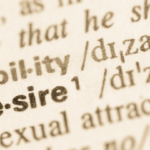What is Chastity?
We might sometimes ask whether “chastity” is a term still in use, or a virtue which is less and less present today… But we should understand it’s meaning and how it can be beautiful to experience.
Does it still exist?
If you asked a young person of today what the virtue of chastity is, they would look at you, almost confusedly, asking what it is you’re talking about. Some might reply it’s “something” we don’t do anymore, from the Middle Ages. Chastity may be seen as a mortification practice, to humiliate; a sort of “castration” of the person. This conviction seems to only get stronger when we look at the Christian tradition where monks and nuns take a “vow of chastity”, never marrying and locking themselves into a monastery or convent. And so, today, if we mention chastity, it’s almost always in a negative or outdated context.
Deprivation or liberation?
When talking about chastity, the real problem is we believe that those who live it have to renounce carnal pleasures, without knowing why, depriving themselves of a human joy.
It’s true, pleasure is not something negative in itself and it’s not considered so by those who experience it. Sexual experiences, at increasingly younger ages and more widely spread among the youth, testify to the search of a pleasure without limits. We are “free” when we can live our sexuality without constraint or cultural limitations. However, living like this doesn’t seem to make us any freer; a sexuality left to its own devices, provokes addiction, frustration, wounds and a feeling of being empty in our hearts.
Giving, is really gaining
Chastity is the path on which I will learn to love the other. Egoism defines itself in possessing, provoking pleasure for itself; love is founded on the gift of self which elates the other’s heart. Living chastely is choosing to respect the other, their existence, their body, their being and welcoming all that they are, in a profound mystery which exceeds us. True joy is when I am able to make another feel they are a special and unique being; it’s in valorising gestures like holding hands or caressing. The trivialisation of sexuality dries out relationships, destroying them and taking away the beauty of being together, damaging trust and tenderness.
Object or person?
The television tells us of an ever-increasing violence towards women. This is due to an objectification of the person, which gives us the impression we’re allowed to use the other, to do what we want with them, and how we want it. This means the other feels ‘abused’, ‘robbed’, ‘violated’ in their body and their being; even if, underneath it all there may be sincere feelings of affection or attraction. Indeed, it’s not enough to feel something for someone, to then be able to give ourselves entirely to them.
In love, there’s no rush!
To avoid becoming dry instruments of pleasure, here’s the key word: patience! I know, especially for young people, it’s a synonym for torture, but waiting for important steps and key moments, when it comes to love, is essential for a romantic or friendly relationship to be constructed and endure in the long term. Love, in its deep and intimate reality, cannot be experienced immediately. Time has to be given to get to know the other, to understand their feelings and whether they’re real, and their way of thinking, their character, their expectations and desires. The fruit of love can only be picked when it’s ripe, at that point it’ll be sweet and a source of happiness.
What do you think? We are here for you, via the chat to listen and answer your questions:





